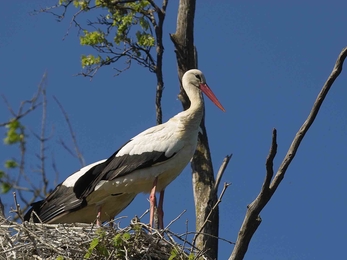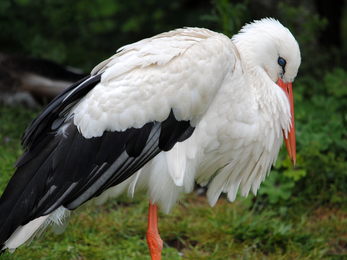White storks were previously part of the British landscape, with evidence of the birds in fossil records stretching back 360,000 years until the Middle Ages, when it’s thought that habitat loss and over-hunting led to their extinction.
Andrew Impey, Essex Wildlife Trust’s Chief Executive Officer, says: “The white stork is a wonderfully charismatic species and a former British breeding bird, which can act as a flagship for the protection of vital wetland habitats. Furthermore, it can act as a beacon for wildlife engagement, telling the story of nature’s resilience and highlighting what is possible if we are prepared to take positive action for nature”.
Six of the birds arrived at Abberton Reservoir on Easter Sunday and stayed for the day, feeding and resting along the reservoir’s edges and surrounding farmland, much to local birdwatcher’s pleasure. White storks can cover vast distances, so a 100 mile trip from Sussex to Essex is not surprising, however it is a first for the site. Essex Wildlife Trust, who manages Abberton Reservoir Nature Discovery Park hopes it will not be the last time these birds are seen.
Katie Goldsbrough, Essex Wildlife Trust’s Ranger at Abberton Reservoir Nature Discovery Park, says: “Abberton reservoir is the perfect mixture of wetland and grassland habitats to accommodate white storks within the Essex Area. We also have lots of potential nesting trees and even some unused osprey platforms that would be perfect for breeding storks! Fingers crossed that they return to Abberton again soon and that this once lost species in our landscape, will make its mark once more on our beloved county of Essex.”


